When searching for Afghan restaurants in the United States on the Michelin Guide website, there is only one result: Lapis in Washington, D.C, which has a "Bib Gourmand" distinction. While not a highly-coveted star, Bib Gourmand status is highly respected, as Michelin's aim in selecting Bib Gourmand restaurants is indicative of high quality and lower cost, often highlighting special three-course meals.
In a season 2 episode of Padma Lakshmi's "Taste the Nation" on Hulu, Lakshmi profiled Afghan people, culture and food in her usual inquisitive, empathetic manner. On a trip to Washington, DC, she cooked with and interviewed Chef Shamim Popal of Lapis.
Popal, who's not only the executive chef of Lapis, but also one of the heads of the family-run Popal Group, a management and restaurant company which also oversees Lutèce in Georgetown.
In the episode, Popal makes qabuli palow for Lakshmi, "the way it was made before war." Popal confidently and calmly walks Lakshmi through the recipe, discussing the oil, turmeric, lamb and rice, with Lakshmi's calling the recipe "a love letter to the country [Popal] left behind."
Popal tells Lakshmi about how she came to the U.S in 1987 due to the Soviet invasion, getting emotional as she speaks about leaving her home country and giving birth to her son around that time. "We brought all the good things from our country and show it to the people [here in the states]," Popal says as she pulls the finished qabuli palow out of the oven, with Lakshmi excitedly eating it as she speaks about the fragrance and cookery of the rice and lamb.
Salon Food delved a bit deeper with Popal, asking her about her role in the restaurant and the restaurant group, the humor present on the Lapis menu, what being a chef means to her and how proud she is that Lapis is such a "family place" that has "become a standard-bearer of excellence for Afghan cuisine."
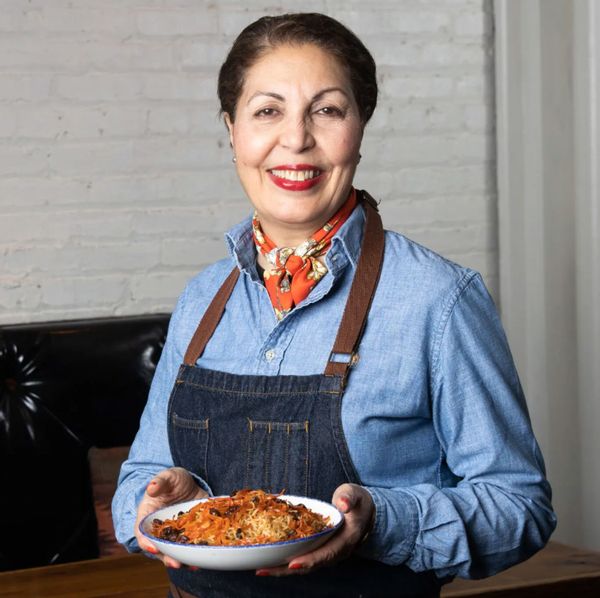 Chef Shamim Popal of Lapis (Photo courtesy of the Popal Group)
Chef Shamim Popal of Lapis (Photo courtesy of the Popal Group)The following interview has been lightly edited for clarity and length.
Your menu highlights traditional Afghan cuisine and tweaks it slightly. What is the difference like between classic Afghani food, served to a crowd or family-style and the elevated kind served at Lapis?
We serve authentic Afghan dishes that have been around for centuries. Our more modern take incorporates some healthier alternatives such as olive oil, varied seasoning and a greater emphasis on Afghanistan’s wide array of vegetarian and vegan dishes to cater to the city’s health-conscious tastes.
For those unaffiliated or unfamiliar with Afghan cuisine, how would you explain its tenets and fundamentals?
Afghan food has been influenced by different cultures across Asia given the country’s location at the crossroads of the famous “Silk Road” trading corridor of centuries past. We have a variety of meat (beef, lamb primarily) and vegetarian dishes — beans, spinach, lentils, cauliflower, okra, [etcetera] — with rice and bread as key staples.
Dumplings (aushak and mantoo) are also very popular in Afghanistan. The Afghan word mantoo comes from Korean (mandoo) for dumpling given the historic trading ties across Asia. Cumin, coriander, cardamom, ginger represent the array of spices commonly found in Afghan cuisine, particularly at Lapis.
What are the three most important ingredients of any cook looking to get into Afghan cooking? What is your favorite ingredient to work with?
Cumin, coriander and ginger are among some of my favorite because they are healthy and flavorful. Each chef brings their own flavor choices. My sisters and I may make the same dish but with slightly different flavors and seasoning depending on our own tastes.
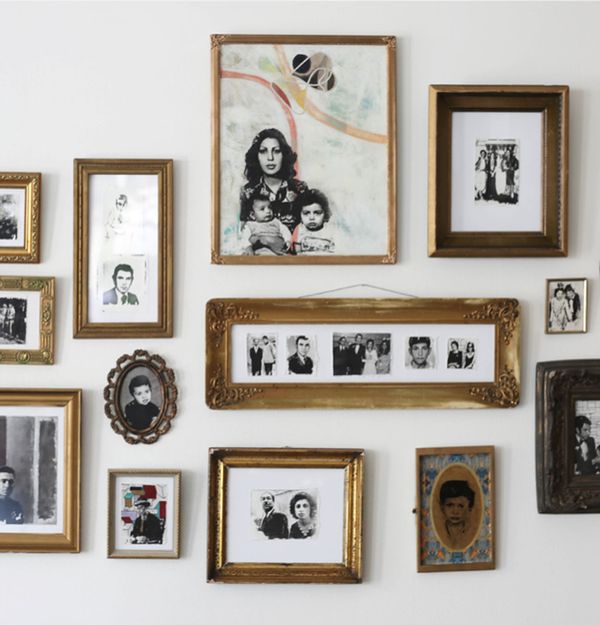 Art on the wall at Lapis (Photo courtesy of the Popal Group)
Art on the wall at Lapis (Photo courtesy of the Popal Group)
What stands out for you as a formative moment that got you into cooking or food at large?
When I fled Afghanistan as a young woman in her mid-20s, I had no choice but to learn to cook for my family. That was the formative moment for me. I relied on advice from my uncle and siblings who were far better cooks and I took some culinary courses with professional foreign chefs while living abroad.
What would you say is an ideal “gateway” recipe for someone who’s never cooked or eaten Afghan food before?
Learning to prepare Afghan rice is an essential first step. It’s the equivalent of preparing a good plate of pasta in Italy.
Want more great food writing and recipes? Subscribe to Salon Food's newsletter, The Bite.
How does Lapis practice sustainability in its kitchen?
We use trusted local and national vendors, our meat is Halal and we are mindful about using eco-friendly packaging.
To you, what is the most important duty a chef can focus or strive towards?
A chef is the leader in the kitchen and has to motivate a team, ensure quality and have a vision that sets the restaurant apart from other competitors.
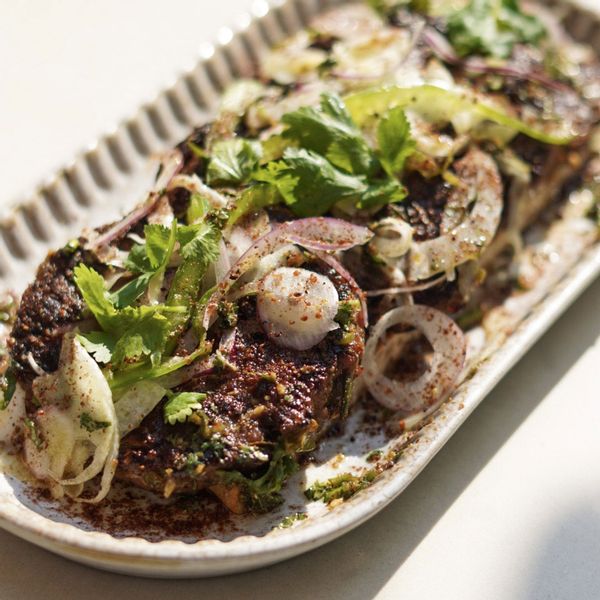 Dish at Lapis (Photo courtesy of the Popal Group)
Dish at Lapis (Photo courtesy of the Popal Group)
Do you have any tips on cutting down on food waste for home cooks?
Be precise about your recipes and err on the side of less — especially at the beginning.
What are you most passionate about as a chef, both within Afghan cuisine and in general?
The joy and satisfaction of sharing my Afghan culinary heritage with people who have never tasted Afghan food and seeing their smiles when they savor its rich flavors.
What would you like to see next for Lapis — and Afghan food in general?
I’m proud to see Lapis become a standard-bearer of excellence for Afghan cuisine. My family and I look forward to bringing our culinary offerings to many more diners. We are also proud to see the rise in popularity for Afghan food thanks to the great work of other Afghan restaurateurs in DC and the region.
Lapis is the only Afghan restaurant in the US Michelin guide. How significant is that representation and that platform?
It’s very significant for us culturally and we couldn’t be prouder given the pedigree and prestige of Michelin globally.
How would you define an "Afghan bistro?"
An Afghan bistro is our version of a cozy and comfortable French bistro-but with Afghan food. Our décor has elements of a French bistro given our years of experience operating French restaurants in the city (Café Bonaparte, Napoleon, Lutece) coupled with hints of Afghan culture.
I love the humor on the menu, like the subtitle on the vegetarian dishes section that reads "Afghanistan's best-kept secret because most people think we are meat-eating mountain people with large turbans (also true)." I also love the "as formidable as Afghanistan's mighty mountain ranges" under signature dishes and the "(yes they exist), Genghis Khan wasn’t the only guy who knew a thing or two about dumplings" under Afghan dumplings. How did these tongue-in-cheek jokes come about?
I credit my son for those. We wanted to play on people’s assumptions and stereotypes of Afghanistan as a distant and exotic land with a twist of humor and I think it has paid off!
Your website says that Lapis is a "family place." Can you talk a bit about that experience, leaving Afghanistan, coming to America and "pursuing an entrepreneurial path to channel of creativity?"
My husband and I always wanted to immigrate to America to give our children a better life and we are proud to be Americans by choice. Our success in the restaurant business over the past 20 years was possible by the dedication and vision of our family. Lapis represents our culinary home and we consider every guest dining there as a guest in that home away from home.
In addition to Lapis, you've owned and operated Bonaparte, Napoleon Bistro, Malmaison and Berliner — how would you differentiate between all of them?
We have also recently added Lutece (formerly Café Bonaparte) and Pascual (Mexican cuisine) to our roster. Each concept has offered something unique to Washington but with a consistent commitment to great food, service and ambiance true to our brand.
We need your help to stay independent
The website states "Lapis has been a dream a long time in the works. Here we cook the flavors of our childhood and fill the kitchen with scents of a distant home." So beautiful put — what does that mean to you?
The dishes are those that we would enjoy in our childhood homes in Afghanistan. Their aromas and flavors are reminiscent of that childhood and a life that once was. We have tried to recreate the best parts of that culinary life here in America for ourselves and our guests.
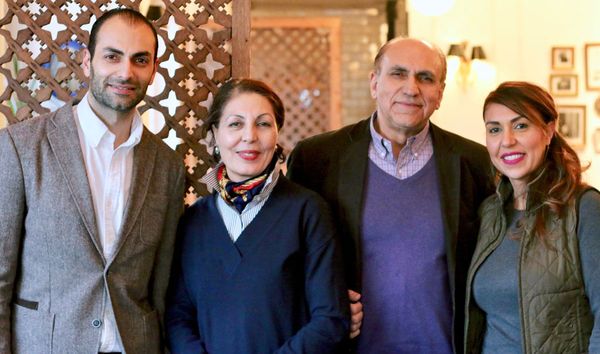 The Popal Family (Photo courtesy of the Popal Group)
The Popal Family (Photo courtesy of the Popal Group)
You came to the US in the late 80s as an Afghan refugee with no restaurant cooking experience. How did your growth — both in and outside of the kitchen — result in such a successful restaurant and restaurant group?
Faith, optimism, courage and a creative family that pushes you to venture outside your comfort zone.
Talk to me a bit about being in a family-owned restaurant, working side-by-side with family. What’s that experience been like?
Running a family business is both extremely gratifying and at times challenging because you are never really off the clock as a family. But we have managed to hit our stride and it helps to have distinct duties and good sense of family unity and a shared vision for success.
Read more
about this topic


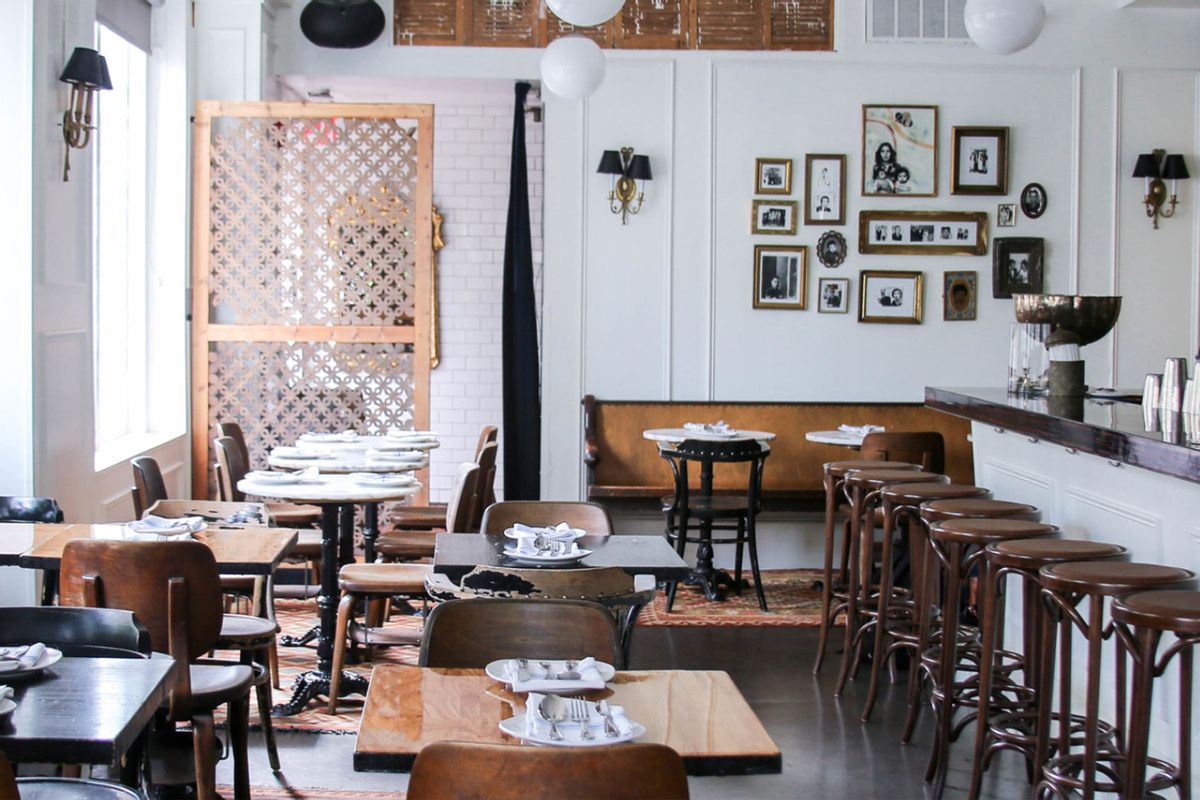
Shares